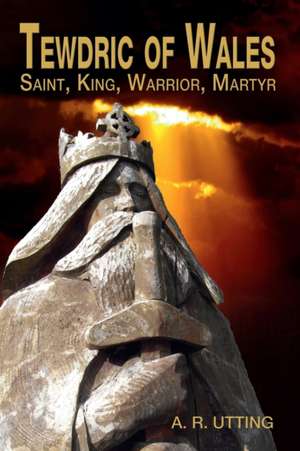Tewdric of Wales
Autor A. R. Uttingen Limba Engleză Paperback – 16 mar 2020
Preț: 111.80 lei
Nou
Puncte Express: 168
Preț estimativ în valută:
21.40€ • 23.25$ • 17.99£
21.40€ • 23.25$ • 17.99£
Carte tipărită la comandă
Livrare economică 21 aprilie-05 mai
Preluare comenzi: 021 569.72.76
Specificații
ISBN-13: 9781789630961
ISBN-10: 1789630967
Pagini: 148
Dimensiuni: 152 x 229 x 10 mm
Greutate: 0.28 kg
Editura: The Choir Press
ISBN-10: 1789630967
Pagini: 148
Dimensiuni: 152 x 229 x 10 mm
Greutate: 0.28 kg
Editura: The Choir Press
Notă biografică
The author was born towards the end of World War II. His early life and education were based around the old Roman town of Colchester, which possibly influenced his subsequent decision to read History at the University of Bristol. He settled in Mathern in 1970 where he first saw St Tewdric's tomb in the village church, later officiating there and at other places of worship around the Diocese of Monmouth as a Lay Reader; he is also a bell-ringer and organist of very last resort. He is married with adult children and his interest in history has continued, supported by membership of The Chepstow Society, Shirenewton Local History Society, and Friends of Colchester Archaeological Trust. He is happy to sing with any choir which is short of a bass, lectures periodically on historical and psychical research themes and often ends up with a posse of eves-droppers when conducting friends and visitors around local castles, and other ancient places.
